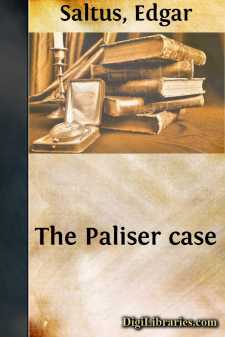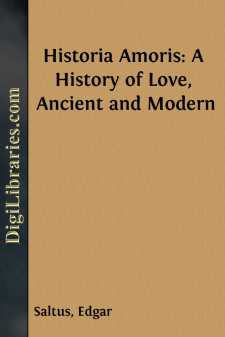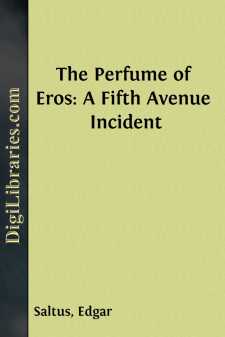Categories
- Antiques & Collectibles 13
- Architecture 36
- Art 48
- Bibles 22
- Biography & Autobiography 813
- Body, Mind & Spirit 142
- Business & Economics 28
- Children's Books 15
- Children's Fiction 12
- Computers 4
- Cooking 94
- Crafts & Hobbies 4
- Drama 346
- Education 46
- Family & Relationships 57
- Fiction 11828
- Games 19
- Gardening 17
- Health & Fitness 34
- History 1377
- House & Home 1
- Humor 147
- Juvenile Fiction 1873
- Juvenile Nonfiction 202
- Language Arts & Disciplines 88
- Law 16
- Literary Collections 686
- Literary Criticism 179
- Mathematics 13
- Medical 41
- Music 40
- Nature 179
- Non-Classifiable 1768
- Performing Arts 7
- Periodicals 1453
- Philosophy 64
- Photography 2
- Poetry 896
- Political Science 203
- Psychology 42
- Reference 154
- Religion 513
- Science 126
- Self-Help 84
- Social Science 81
- Sports & Recreation 34
- Study Aids 3
- Technology & Engineering 59
- Transportation 23
- Travel 463
- True Crime 29
The Paliser case
by: Edgar Saltus
Description:
Excerpt
The murder of Monty Paliser, headlined that morning in the papers, shook the metropolis at breakfast, buttered the toast, improved the taste of the coffee.
Murdered! It seemed too bad to be false. Moreover, there was his picture, the portrait of a young man obviously high-bred and insolently good-looking. In addition to war news and the financial page, what more could you decently ask for a penny? Nothing, perhaps, except the address of the murderer. But that detail, which the morning papers omitted, extras shortly supplied. Meanwhile in the minds of imaginative New Yorkers, visions of the infernal feminine surged. The murdered man's name was evocative.
His father, Montagu Paliser, generally known as M. P., had lived in that extensive manner in which New York formerly took an indignant delight. Behind him, extending back to the remotest past when Bowling Green was the centre of fashion, always there had been a Paliser, precisely as there has always been a Livingston. These people and a dozen others formed the landed gentry—a gentry otherwise landed since. But not the Paliser clan. The original Paliser was very wealthy. All told he had a thousand dollars. Montagu Paliser, the murdered man's father, had stated casually, as though offering unimportant information, that, by Gad, sir, you can't live like a gentleman on less than a thousand dollars a day. That was years and years ago. Afterward he doubled his estimate. Subsequently, he quadrupled it. It made no hole in him either. In spite of his yacht, his racing stable, his town house, his country residences and formerly in the great days, or rather in the great nights, his ladies of the ballet, in spite of these incidentals his wealth increased. No end to it, is about the way in which he was currently quoted.
All New Yorkers knew him, at any rate by repute, precisely as the least among us knows Mr. Carnegie, though perhaps more intimately. The tales of his orgies, of his ladies, of that divorce case and of the yacht scandal which burst like a starball, tales Victorian and now legendary, have, in their mere recital, made many an old reprobate's mouth champagne. But latterly, during the present generation that is, the ineffable Paliser—M. P. for short—who, with claret liveries and a yard of brass behind him had tooled his four-in-hand, or else, in his superb white yacht, gave you something to talk about, well, from living very extensively he had renounced the romps and banalities of this life.
Old reprobates could chuckle all they liked over the uproar he had raised in the small and early family party that social New York used to be. But in club windows there were no new tales of him to tell. Like a potentate outwearied with the circumstance of State, he had chucked it, definitely for himself, and recently in favour of his son, Monty, who, in the month of March, 1917, arrived from Havana at the family residence, which in successive migrations had moved, as the heart of Manhattan has moved, from the neighbourhood of the Battery to that of the Plaza.
In these migrations the Palisers had not derogated from their high estate. Originally, one of the first families here, the centuries, few but plural, had increased what is happily known as their prestige....











